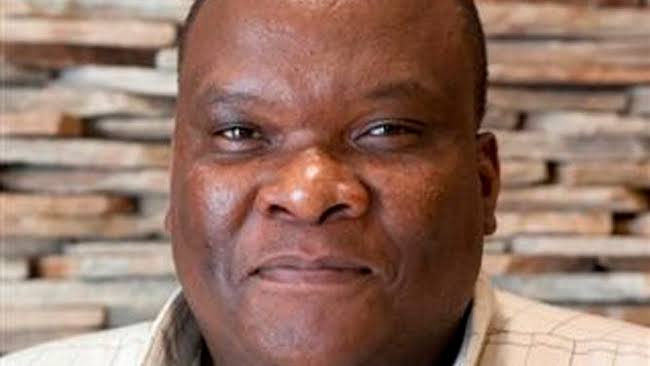Commenting on the death of Robert Mangaliso Sobukwe, Andrew Silk, a frequent contributor to The Nation, poignantly remarked that “theorists of revolution speak of the moment when the servant stops believing the master yet does not have the power to overthrow him.
To survive from then on, he must understand the master better than the master understands him.” With the death Robert Sobukwe, just six months after Steve Biko was killed, black people in this country lost two men who did the most to bring them to that moment of insight and understanding. The 45th annual commemoration of the death of Robert Mangaliso Sobukwe seems a fitting point at which to pause and reflect on his profound influence and personal legacy. A quiet leader, a perceptive thinker, an articulate speaker, a persuasive spokesman, a wise, resolute and committed politician.
Sobukwe was never silent nor ambiguous nor evasive when the truth called him to speak.
Forty-five years after his death, Sobukwe’s keen political genius still enthrals. As the foremost political genius of his time, Sobukwe was revered by supporters and foes alike. Sadly, he was prematurely taken away from us when a lot was still expected of him. His spirit, however, lives on and his legacy is still with us.
Robert Sobukwe was a bold and original thinker whose boundless intellectual energy was matched by his profound understanding of politics. He was described as enthusiastic, witty and possessing unparalleled determination. Sobukwe undoubtedly endeared himself to millions of people with his charming political oratory.
A populariser of Pan Africanism and one of the founding fathers of the Pan Africanist Congress, his name has achieved an almost mythical status within the South African liberation struggle. Perhaps the most enduring aspect of Sobukwe’s legacy was his incisive mind.
Detested by some, and respected by many, Sobukwe possessed an undeniable intellectual brilliance and a capacious vision of world culture. His generosity, friendliness, desire to help brought him respect and gratitude of his colleagues and students. Sobukwe was known for his dazzling oratory and rare gift of being accessible to all people from all walks of life. He is remembered as a consummate teacher par excellence. His second name, Mangaliso, which loosely translated means the one who amazes, aptly reminds us why people never stop being amazed by the incredible intellect that Sobukwe was endowed with.
It would be tedious to list all the highlights and setbacks associated with Robert Sobukwe. However, it is worthwhile looking at some of them. Whilst studying at the University of Fort Hare he was elected president of the Fort Hare Students’ Representative Council, where he proved to be an effective orator. He later became a lecturer in African Studies at the University of the Witwatersrand – a job which earned him the nickname ‘the Prof’. This was no small feat indeed.
For Wits university to have allowed a black person to teach says a lot about the character of Robert Sobukwe.
When the PAC was established, Robert Sobukwe was unanimously elected as the party’s first President. He was also instrumental in organising the PAC’s anti-pass campaign, which unfortunately led to the mowing down of 69 people and injury to 180 others in what became known as the Sharpville Massacre. Sobukwe had the dubious honour of having been the only political prisoner to have had an Act of Parliament passed to detain him. The Act included what was termed the ‘Sobukwe clause,’ which empowered the Minister of Justice to prolong the detention of any political prisoner indefinitely. The clause was never used to detain anyone else. While on Robben Island, Sobukwe was kept in solitary confinement and after his release from prison he was kept under house arrest. Robert Sobukwe died of lung cancer during his eighteenth year of government restrictions – six of which was spent in prison and twelve under ‘banning orders, ‘which forbade him from leaving the mining town of Kimberly, from being quoted in the media, or from meeting privately with more than one person. In spite of all these setbacks, the Apartheid government did not succeed in making him irrelevant. All the trials and tribulations he went through did not deter him but instead galvanised him to continue agitating for the total liberation of the oppressed. He continued to fight despite his evidently failing health, which was made worse by the government’s resolve to deliberately make it harder to receive treatment.
The Pan African Congress, through the visionary leadership of Sobukwe, tried to rid the black man of the servant mentality through identification with other nationalist movements in Africa. Sobukwe strongly believed that his movement would spread not through tight organisation but by a new spirit of black pride that gathered its own momentum. He also believed that, given one massive show of strength, a chain reaction would sweep across the country.
Like other anti-colonialists, Sobukwe strongly believed that the decolonisation and independence of the Africans were premised upon the discovery or rehabilitation of their identity, which colonialism had disparaged and demolished. Stuart Hall in his article, “Cultural Identity and Diaspora”, identifies this as a search for a ‘sort of collective “one true self which people with a shared history and ancestry hold in common’.
Franz Fanon considers this rediscovery of post-colonial identity the object of passionate research directed by the secret hope of discovering beyond the misery of today, beyond self-contempt, resignation and abjuration, some very beautiful and splendid era whose existence rehabilitates us both in regard to ourselves and in regard to others’. We owe it to Sobukwe to finally ensure the restoration of the dignity and true identity of the black man.
If Sobukwe were to wake up from his eternal sleep I shudder to think what his take would be on the state of affairs prevailing in the African continent and particularly in South Africa. He would be agonizingly disturbed to see the Pan Africanist Congress in complete political disarray and on the verge of being consigned to the dustbin of political history. It would be sad indeed for the PAC, given its sterling contribution to the liberation struggle, to simply allow itself to stagnate and languish in the museum of traditional idylls and artifacts. Sobukwe would, however, be impressed by the few that have remained steadfastly loyal to the ideals of a movement that he and others had painstakingly established.
Sobukwe would be disillusioned by the high level of corruption that continues to ravage our beautiful country. Lest it be forgotten, Sobukwe dedicated his life to one thing only – the liberation of humanity and in particular, black people
He would also challenge our intellectuals to come out of their cocoons and start contributing towards the development of our country. Indeed, he would be disappointed by the withdrawal of academic intellectuals into their own esoteric preoccupations with “the democratic malaise” and even the decline of democratic debate.
He would be disappointed by the huge gap between the rich and the poor throughout the African continent. He would be concerned by the slow pace of radical economic transformation to benefit the poor. He would also be extremely embarrassed that there are still people on this day and age who still use the bucket system to relieve themselves.
In sustaining the legacy of Robert Mangaliso Sobukwe, the verses from the poem A Psalm of Life, written by Henry Wadsworth Longfellow, best describes how Sobukwe should be remembered:
Lives of great men all remind us
We can make our lives sublime,
And, departing, leave behind us
Footprints on the sands of time…
Sobukwe has bequeathed us his footprints, from which we can draw inspiration in our quest to discover our true African identity. Indeed, we all have the responsibility to ensure that Sobukwe’s legacy is not only kept alive, but that it lives within us. Sobukwe may be departed, but he has a lasting and spacious abode in our hearts. What a great man who, with vitality, dedicated himself to the service of humanity. Some men are born to lead others. They have a way about them: an ability to inspire others to achieve greatness. It was William Shakespeare who wrote, ‘Be not afraid of greatness. Some are born great, some achieve greatness, and others have greatness thrust upon them’. Few would dispute the fact that Sobukwe had greatness thrust upon him.
***
Dr Vusi Shongwe is a historian, writer and heritage specialist.

